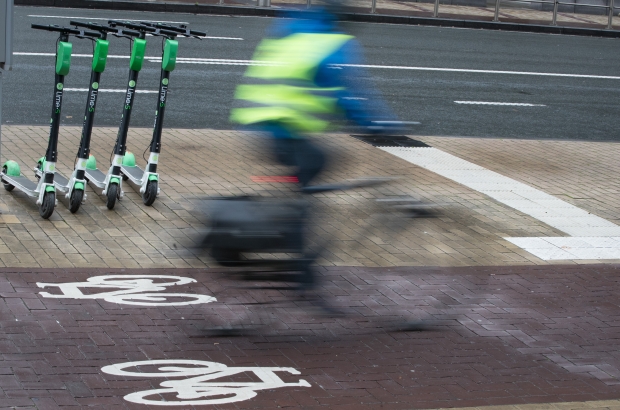- Daily & Weekly newsletters
- Buy & download The Bulletin
- Comment on our articles
Women avoid using shared bikes and scooters
More than three quarters - 77% - of women in Brussels, never use an electric shared bicycle or scooter, according to the results of a new Ipsos survey commissioned by Brussels-based women’s movement ZIJkant and electric bike and scooter provider Lime Micromobility.
The main reasons given are a lack of security, street harassment and inadequate infrastructure, the study found.
According to the survey, 53% of women feel unsafe, especially in deserted neighbourhoods or in the evening. In addition, 30% criticise inadequate lighting and protection along cycle paths and that there are not enough safe parking places. Another 20% cite the lack of separate cycle paths as a reason for not cycling at night.
As a result, more than six in 10 women report feeling scared when cycling at night. Some 65% say they change their behaviour during night time trips and 80% say they cannot move freely around the city.
To address this gap, Lime and the Dutch-speaking women’s group ZIJkant joined forces for "Women Bike the City", a symbolic bike ride through Brussels on Sunday.
The 5km tour follows a route highlighting female street names such as Allée Chantal Akerman (the groundbreaking film maker) and Drève Anna Boch (impressionist painter) and feminist street art, for example Shiro’s La Belle Hip Hop and ENCQ’s Greta Thunberg.
The ride ended at the joyous woman on a bike mural at the Leopold I kindergarten in Laeken, designed for ZIJkant by Anthea Missy in 2020.
This was the year of “the first Women Bike The City tour through the few streets named after women and feminist street art,” ZIJkant said.
“Five years later, Brussels is looking a lot more feminine, but female cyclists are still in the minority. Street harassment also remains a major problem. With a new tour, we are riding for a safe and free city.”
A ZIJkant leader said much more needs to be done, also with “gender-sensitive interventions and planning,” to make public spaces and seating more friendly to women.
She told The Bulletin that even repositioning benches placed in a row against a wall, that can make women feel intimidated, would be a start.
In general, there should be more seating areas, some placed in more private spaces, with the aim of making women feel more comfortable breastfeeding in public, for example.


















